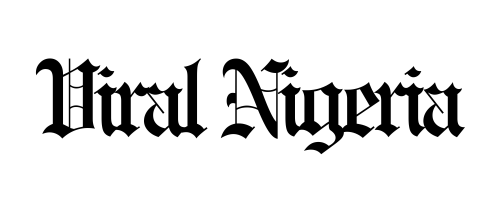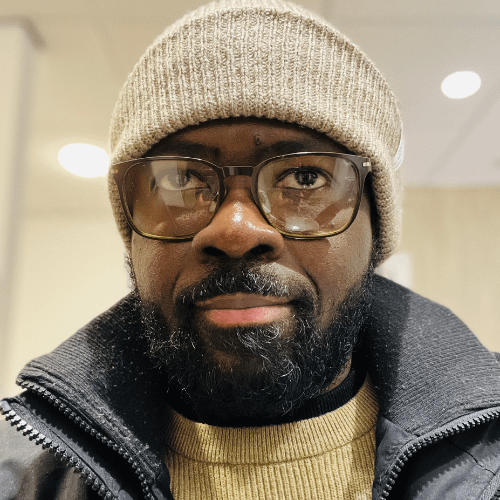As Nigeria navigates 2025, the consumer market is undergoing a significant shift. With inflation concerns, rising digital access, an active youth demographic, and ongoing urbanisation, people are making more deliberate choices about how and where they spend their money. Understanding these changes isn’t just helpful—it’s essential for entrepreneurs, marketers, and policymakers who want to remain relevant and competitive.
The Nigerian consumer is not who they were five years ago. Purchasing habits are no longer driven solely by price and availability but by values, identity, convenience, and technological access. Let’s explore eleven critical consumer trends shaping Nigeria this year and what they mean for businesses trying to keep up.
1. Value-Centric Decision Making
With fluctuating exchange rates and unpredictable fuel prices, Nigerians are more focused than ever on getting the most value for their money. This doesn’t always mean choosing the cheapest option, but it does mean becoming more analytical about quality, durability, and functionality.
Consumers are asking tougher questions: Does this last? Will it solve my real need? Can I find it cheaper elsewhere without sacrificing quality? As a result, brands that position themselves as offering clear, long-term benefits rather than short-term hype are more likely to win trust and repeat business.
2. Digital-First Discovery and Shopping
Mobile internet continues to shape how Nigerians discover and buy products. Platforms like Instagram, WhatsApp, Facebook Marketplace, and TikTok are often the first points of interaction between consumers and sellers.
Even traditional businesses are embracing a more digital approach. From personal shoppers promoting wares on status updates to full-fledged e-commerce stores, the shift is irreversible. Any brand not visible online risks being forgotten altogether. That said, trust remains a huge issue. Many consumers still prefer to “verify” sellers via testimonials, influencer recommendations, or peer reviews before committing.
3. Personalisation Expectations
As global platforms like Netflix, Spotify, and Amazon influence Nigerian user expectations, more people are seeking tailored experiences—even from local businesses. Personalisation goes beyond addressing someone by name in an email; it includes product suggestions based on behaviour, targeted SMS offers, and curated subscription packages.
Even smaller brands are now expected to know their audience more intimately. Clothing brands are offering size customisation. Restaurants are tracking customer preferences. Fintech apps suggest savings plans based on user habits. Consumers are rewarding businesses that “get them” with loyalty and word-of-mouth promotion.
4. Demand for Ethical and Purpose-Driven Brands
While Nigeria’s economic challenges are real, a growing segment of consumers—especially Gen Z and Millennials—are choosing to support brands that reflect their values. Whether it’s sustainable packaging, fair wages, or social impact initiatives, people are asking: “What do you stand for?”
Businesses involved in local empowerment, waste reduction, or female entrepreneurship are particularly gaining traction. Consumers are becoming more conscious about who they fund with their naira. They want to feel that their money is going toward something more than just a product—it’s a vote for the kind of society they want.
5. Rising Popularity of ‘Buy Now, Pay Later’ (BNPL)
As disposable income remains stretched, flexible payment models are gaining ground. The “Buy Now, Pay Later” concept is no longer foreign to Nigerian shoppers. Platforms like Payfi, Carbon Zero, and CDcare have introduced accessible versions of this model, allowing people to buy appliances, gadgets, and even furniture in instalments.
This trend isn’t just about affordability—it also taps into a shift in expectations. Consumers no longer want to wait months to own what they believe is essential. For businesses, this opens a new lane for increasing order value, reducing cart abandonment, and reaching a wider audience.
6. Wellness and Mental Health Spending
The conversation around mental health, wellness, and self-care is becoming louder—and more commercialised. Nigerians, particularly in urban areas, are now spending on therapy, coaching, spa treatments, fitness classes, wellness apps, and supplements.
The rise of platforms offering teletherapy, yoga instructors marketing via Instagram, and fitness challenges spreading on WhatsApp is a reflection of deeper needs. People want more than survival—they want balance, peace, and confidence. Products and services that support this quest are becoming essentials rather than luxuries for a growing consumer group.
7. Local is Attractive Again
Made-in-Nigeria used to carry a certain stigma, but that perception is shifting. Nigerian consumers are beginning to show greater appreciation for local products, artisanship, and innovation. From fashion labels using native fabrics to skincare brands formulated with indigenous ingredients, the local brand story now carries pride and authenticity.
This change is partially driven by the global Afrocentric movement and partially by practical economics. Imported goods are more expensive due to currency issues, and local brands are stepping up to match global standards in packaging, quality, and customer service.
8. Influence-Driven Buying Decisions
Social proof is currency in Nigeria’s digital economy. Influencers—both major celebrities and micro-creators—continue to play a big role in shaping buyer choices. What someone sees a popular TikToker or Instagram personality using often feels more credible than an ad or formal campaign.
Even within smaller peer circles, recommendations carry weight. WhatsApp status updates, Twitter reviews, or personal endorsements from a trusted friend can spark buying decisions. Businesses that learn how to collaborate with content creators or build real online communities are more likely to enjoy consistent engagement and sales.
9. On-Demand and Instant Gratification Services
Nigerians are growing more impatient with traditional service delivery. From food to fintech, speed is becoming a competitive edge. People now expect same-day delivery, instant airtime top-up, real-time payment confirmation, and rapid customer support.
This expectation is being driven by platforms like Jumia Food, Gokada, Bolt Food, and digital banks offering near-instant transactions. Consumers are willing to pay slightly more for speed and convenience. If your business is slow or clunky, it risks losing relevance, no matter how great the product is.
10. Community-Driven Consumption
Whether through Twitter Spaces, Facebook groups, Telegram channels, or YouTube live chats, Nigerians are gathering online to share opinions, complain, recommend, and hype. Consumers are less likely to act on isolated marketing and more likely to be influenced by the sentiments of their community.
Communities are driving everything from investment clubs to fashion trends. People want to feel like they belong to something while making consumption decisions. Brands that foster a sense of inclusion and shared purpose—not just transaction—will thrive.
11. Mobile Wallets and Alternative Payment Systems
Cash is declining in popularity, especially among youth and urban dwellers. The rise of mobile wallets, fintech apps, and bank transfers has transformed how Nigerians pay. Platforms like Opay, Palmpay, Kuda, and Moniepoint have made it easier for people to transact without entering a physical bank.
E-commerce stores, roadside vendors, hair salons, and mechanics are all embracing mobile payment options. Even churches and schools are integrating digital payments into their operations. As trust in these systems grows, so will the demand for businesses to offer a variety of flexible, low-barrier payment options.
Final Thoughts
The Nigerian consumer in 2025 is smarter, bolder, and more connected than ever. They’re not just buying products—they’re engaging with values, communities, and expectations. From insisting on flexible payment plans to supporting local innovations, people are sending a clear message: they want more power, more choice, and more alignment with their personal priorities.
For businesses, this is both a challenge and an opportunity. The brands that listen, adapt, and deliver authentic value will not only survive—they’ll lead. Success in this market is no longer about size or legacy. It’s about relevance, trust, and speed.
Those who choose to ignore these trends do so at their own risk. But for the agile, the attentive, and the bold, Nigeria’s consumer market is full of possibilities. It’s not static. It’s a living, breathing engine of ideas and ambition—and those who pay close attention will find themselves far ahead of the curve.

